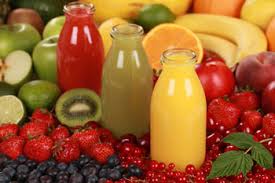Researchers and colleagues from Action on Sugar have assessed the sugar content of over 200 fruit drinks marketed at children and have found them to be “unacceptably high.”
To assess the sugar content of fruit juice drinks, 100% natural juices, and smoothies marketed specifically to children, the researchers measured the quantity of ‘free’ sugars in 203 standard portion sizes (200 ml).
‘Free’ sugars refer to sugars, such as glucose, fructose, sucrose, and table sugar, which are added by the manufacturer, and naturally occurring sugars in honey, syrups, fruit juices and fruit juice concentrates, but not the naturally occurring sugars found in whole fruits and vegetables, which the body metabolises differently and which act to curb energy intake.
The results highlighted wide variations in the amount of free sugars between different types of drink and within the same type of product.
Almost half the products assessed contained at least a child’s entire daily recommended maximum sugar intake of 19g or five teaspoons, show the findings.
Professor Simon Capewell, said: “Increasing public awareness of the detrimental effect sugar sweetened drinks have on kids’ teeth and waistlines has prompted many parents to opt for seemingly healthier fruit juice and smoothie alternatives.
“Unfortunately our research shows that these parents have been misled. The sugar content of the fruit drinks, including natural fruit juices and smoothies tested, is unacceptably high. And smoothies are among the worst.”
The research also found that the labels on all the products contained a potentially reference intake. BUT this figure applies to an average sized active adult woman. So it is wholly inappropriate for children.
As a result of the findings, the researchers make several recommendations:
• Fruit should preferably be eaten WHOLE, not as juice
• Parents should DILUTE fruit juice with water or opt for unsweetened juices, and only serve these drinks during meals
• Portion sizes should be limited to 150 ml/day (not the current 200ml)
Professor Capewell adds: “Manufacturers should stop adding unnecessary amounts of sugars, and therefore calories, to their fruit drink/juice/smoothie products. Our kids are being harmed.
Source: Science daily
N.H.Kh

